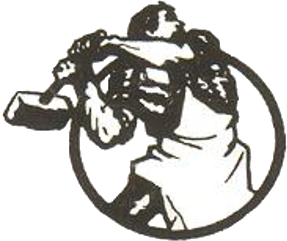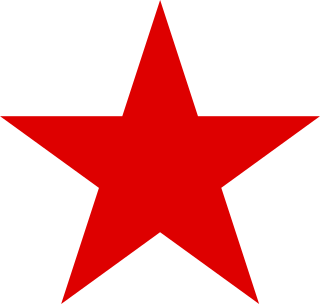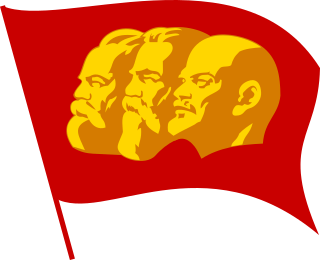The Revolutionary Workers Ferment, often known by its Spanish name or initials Fomento Obrero Revolucionario or FOR, was a small left communist international founded by Grandizo Munis, which arose as a split from the Trotskyist Fourth International at its Second Congress in 1948. [1]

Grandizo Munis was a Spanish politician.

The Fourth International (FI) is a revolutionary socialist international organisation consisting of followers of Leon Trotsky, or Trotskyists, with the declared goal of helping the working class overthrow capitalism and work toward international communism. The Fourth International was established in France in 1938 as Trotsky and his supporters, having been expelled from the Soviet Union, considered the Third International or Comintern to have become lost to Stalinism and incapable of leading the international working class to political power. Thus, Trotskyists founded their own competing Fourth International.
Though Munis and his co-thinkers carried on polemics with other currents of Trotskyst origin for three decades, and it was only in the late 1970s that a formal organization was formed. The FOR only held one international conference, at Paris in 1981. At that conference a split emerged between, on the one hand the "interior" Spanish section based in Spain, supported by the FOCUS group in the United States, and the Spanish "exile" faction based in Paris, along with the French section. The interior Spanish and American groups were expelled from the FOR. [1]
Munis and the FOR had developed an "ultraleft" policy: they were opposed to the "Communist" states, regarding them as state capitalist; they were opposed to the capitalist system and its form of government; they did not believe in parliamentarism, political parties or trade unions; they did not believe in any kind of nationalism or national liberation struggles and affirmed the "inevitable necessity of the communist revolution on a world scale". [1]
State capitalism is an economic system in which the state undertakes commercial economic activity and where the means of production are organized and managed as state-owned business enterprises, or where there is otherwise a dominance of corporatized government agencies or of publicly listed corporations in which the state has controlling shares. Marxist literature defines state capitalism as a social system combining capitalism with ownership or control by a state—by this definition, a state capitalist country is one where the government controls the economy and essentially acts like a single huge corporation, extracting the surplus value from the workforce in order to invest it in further production. This designation applies regardless of the political aims of the state and some people argue that the modern People's Republic of China constitutes a form of state capitalism and/or that the Soviet Union failed in its goal to establish socialism, but rather established state capitalism.
Nationalism is a political, social, and economic ideology and movement characterized by the promotion of the interests of a particular nation, especially with the aim of gaining and maintaining the nation's sovereignty (self-governance) over its homeland. Nationalism holds that each nation should govern itself, free from outside interference (self-determination), that a nation is a natural and ideal basis for a polity, and that the nation is the only rightful source of political power. It further aims to build and maintain a single national identity—based on shared social characteristics such as culture, language, religion, politics, and belief in a shared singular history—and to promote national unity or solidarity. Nationalism, therefore, seeks to preserve and foster a nation's traditional culture, and cultural revivals have been associated with nationalist movements. It also encourages pride in national achievements, and is closely linked to patriotism. Nationalism is often combined with other ideologies, such as conservatism or socialism for example.

Wars of national liberation or national liberation revolutions are conflicts fought by nations to gain independence. The term is used in conjunction with wars against foreign powers to establish separate sovereign states for the rebelling nationality. From a different point of view, these wars are called insurgencies, rebellions, or wars of independence. Guerrilla warfare or asymmetric warfare is often utilized by groups labeled as national liberation movements, often with support from other states.




